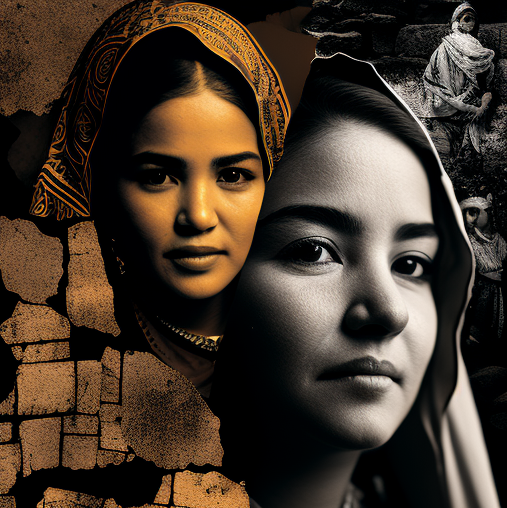Berber women have played a significant role in shaping the history, culture, and politics of North Africa. From legendary queens to modern-day activists, Berber women have made important contributions in various fields and have challenged patriarchal norms and structures throughout history.
In the past, there were several notable Berber women who stood out for their courage, leadership, and intellectual achievements.
Tin Hinan – According to legend, Tin Hinan was a Berber queen who lived in the 4th century and is believed to have founded the Tuareg confederation.
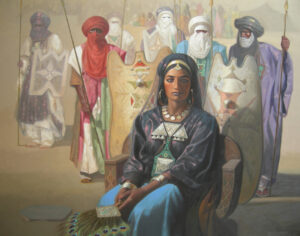
wikipedia She is also said to have introduced Islam to the region and is considered a symbol of Tuareg unity and identity.
Tazoughert Fatma – was a Kabyle warrior who fought against French colonialism in the late 19th and early 20th centuries.
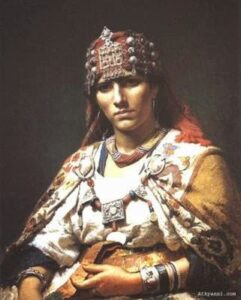
dictionnaire-creatrices.com She was known for her bravery and tactical skill, and she played a key role in organizing resistance against the colonial authorities.
Kahina (Dihya) – was a Berber queen who led a resistance movement against the Arab conquest of North Africa in the 7th century.
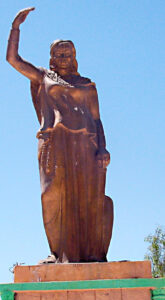
Wikipedia She was known for her military prowess and strategic leadership, and she is revered as a symbol of Berber resistance and independence.
Lalla Fatma N’Soumer – was a Berber woman who led a rebellion against French colonial forces in Algeria in the mid-19th century.
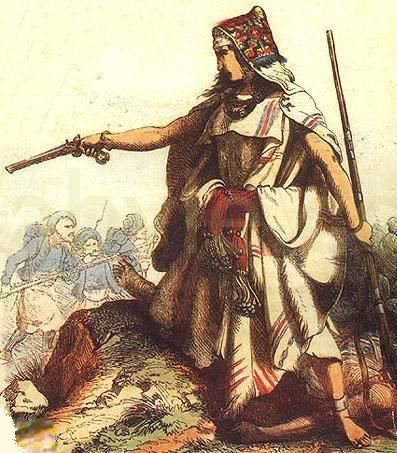
Wikipedia She was a charismatic leader and a skilled strategist, and her legacy has been celebrated in Berber folklore and literature.
Fatima al-Fihri – was a Berber woman who founded the University of al-Qarawiyyin in Fez, Morocco, in the 9th century.

wikipedia The university is considered one of the oldest continuously operating institutions of higher education in the world, and it played a key role in the development of Islamic scholarship and intellectual culture.
In recent times, Berber women continue to contribute to various fields and challenge gender norms and stereotypes. In politics, Aicha Ech Channa is a Moroccan activist who founded several organizations to support disadvantaged women and children. In literature, Leila Slimani is a Franco-Moroccan writer who won the Prix Goncourt for her novel “Chanson douce” in 2016. In sports, Nawal El Moutawakel is a Moroccan athlete who won the gold medal in the 400-meter hurdles at the 1984 Olympics, becoming the first woman from an Arab or Islamic country to win an Olympic gold medal.
Despite their contributions, Berber women still face numerous challenges and obstacles. Many continue to experience discrimination, violence, and marginalization, particularly in rural areas. However, Berber women’s activism and advocacy have brought attention to these issues and have contributed to social and political change.
